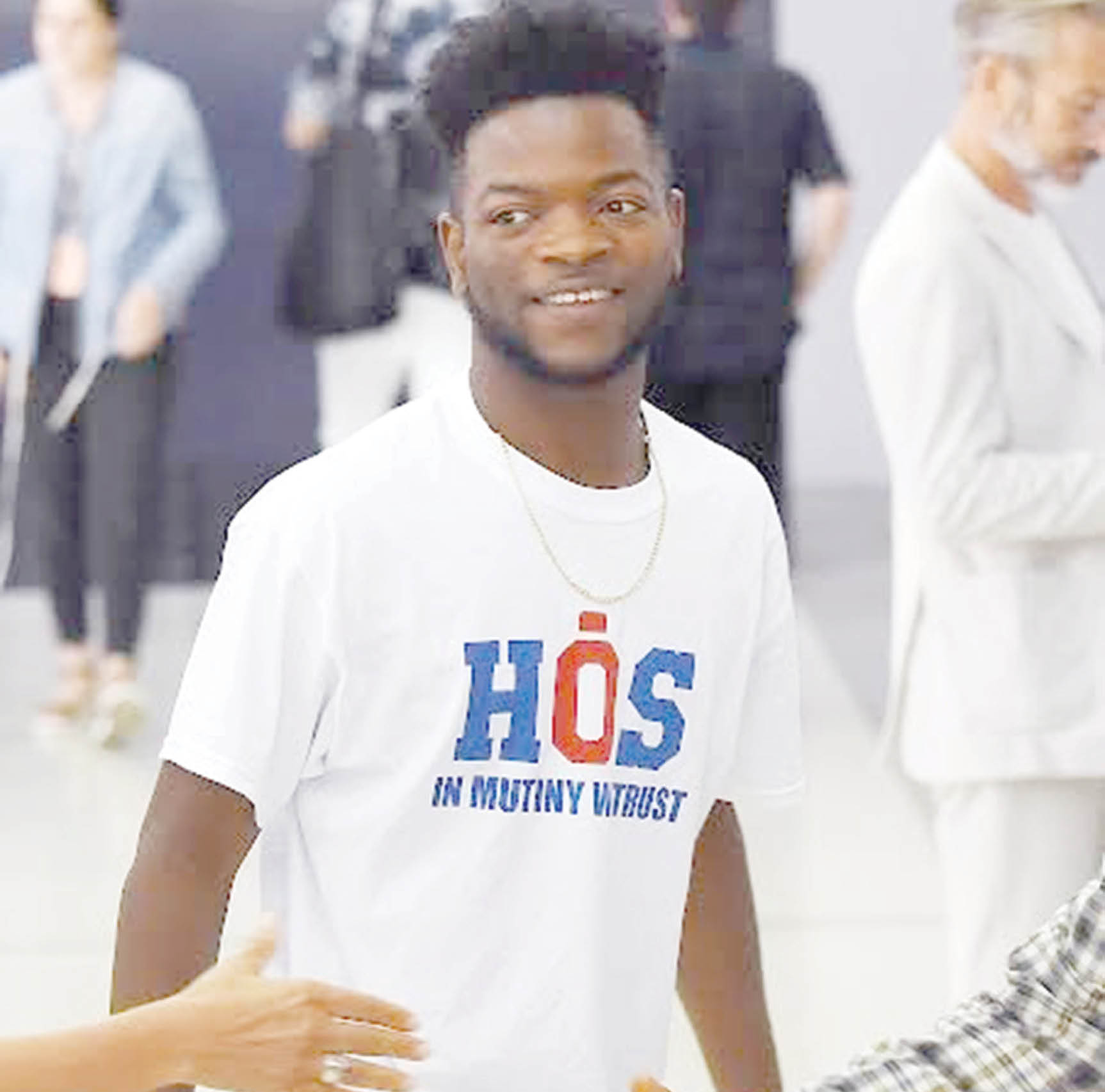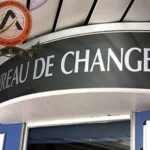Taofeek Abijako is a Nigerian designer and founder of the fashion-based brand Head of State (HOS). The four-year-old brand is setting out to impact the world beyond providing exceptional clothes. ‘Homecoming’, the SS22 collection shown at the brand’s New York Fashion Week (NYFW) performance, was the perfect example. While the 23-year-old designer didn’t take the traditional route into fashion by attending fashion school, he does come from a creative family — his dad was a fashion designer in Lagos, Nigeria. After running HOS for five years, Taofeek is finding clarity in what his unique process looks like to create a collection.
‘Homecoming’ was also Head Of State’s first time doing womenswear, but Taofeek dove all the way in and created well-tailored power suits, along with conceptual gowns with the entire collection inspired by FESTAC ’77, a major month-long international festival held in Lagos in 1977. And what else would we expect from a non-traditional fashion designer?
The show was led by a poetic dancer that opened and closed the curtains of a box-shaped fixture on the stage to reveal the looks behind. Taofeek referenced Professor Peller, a Nigerian magician that performed at FESTAC ’77, to inspire the movements of the dancer and also blended it with the artistic dancing that occurred at the festival, which created a beautiful visual of the dancer summoning each look.
In addition to capturing postcolonial youth culture with distinct design, HOS is also an active presence in the community of Lagos and Albany, NY, where Abijako’s family moved to after leaving Nigeria. And we’re not referring to the usual act of donating a percentage of proceeds, Taofeek and his team are in the field doing the work – literally.
As he continues to solve issues that less fortunate communities are subjected to, and influence the economy in Lagos by showing the people of the city ways to sustain it themselves, he is aware that the community he’s fostering is supported by the village behind him. The young designer speaks on how the next collection will be inspired by his father’s immigration journey and all things in the works for HOS.

How do you feel after your NYFW show?
I’m feeling good. I feel like there is always a financial pandemic after fashion week for every brand, but also the emotional effort. I haven’t fully recovered yet. But, I’m planning a road trip in a couple of weeks.
Do you feel like you have found your voice and appeal as a designer after running HOS for 5 years?
What the past 5 years has taught me is personal growth. I started the brand my senior year in high school and growing as an individual with the brand’s narrative being indirectly tied to my personal narrative, I’ve been able to understand who I am more as a person. For example, I’ve been interviewing my dad for 2 years for my next collection and through that conversation, it’s a therapeutic moment and it was the first time I’ve seen my dad cry.
Would you describe yourself as an artist or a businessman?
I’m more of a note keeper. And an artist too. My approach is listening to conversations and writing everything down, even when it comes to our brand’s community initiatives. It’s just the way I was brought up in a communal environment, so everyone has a say in the conversation and that’s why I say I’m more of a note keeper. But, I’m also learning more on the business side and finding that balance.
When did you learn about FESTAC ’77? Did you have family members that got the chance to attend and tell you about it?
I wanted to learn more because I’ve heard endless stories about it. I had conversations with my uncles and family members and gathering all the information is what drove my narrative.
What was the process like to source inspiration from outfits worn to Festac ’77 for your latest collection?
Another privilege I always like to acknowledge is that my dad was a fashion designer in Lagos, Nigeria and my mom, who he met in the creative scene. I come from a family of collectors and that has always been something they cherished and runs in the family. And I realized that I had endless resources of images that I would never find online. My dad was very young during the time of FESTAC ‘77, but I was able to get in contact with older family members who were able to properly document.
Why is it important for you to donate proceeds to less previlaged communities?
When I was kid, I would make greeting cards out of cardboard and go door to door to sell them and that was my way of making money as a kid in Lagos. I also had a friend who was in a worse financial situation than I was, and he didn’t have this creative approach to make money, but I had a solution. And over time we shared percentages, and it inspired him to find other creative solutions. I never think let me just donate some money, I like to be engaged with the community and sit them down, hear their needs, keep track of all of the notes and together, provide a solution. There’s a lot of ways to show communities how to sustain their own ecosystems. We’re currently working on a product tag so customers can see how their purchase supports the initiatives and they can see what stage each initiative is currently in.
So you run the business out of your Midtown studio right now, what does expansion look like for you in 5 years?
We have a lot of exciting things happening right now that I can’t wait to announce. But, I’ve been talking to Edvin of Theophilio, who is like a brother to me, to figure out how we can create a supportive ecosystem for creatives and possibly share a studio space, so we can share resources and create that community feel. I stopped planning things too far out, even though that may seem chaotic – it works.
Is there anything upcoming in the near future that we could expect from HOS?
More community initiatives will roll out, along with the storytelling, and we’re figuring out how to lay the first brick for the structures we want to build, so I would say keep a close eye out for that.
This interview was first published in Essence magazine on October 1 2021.

 Join Daily Trust WhatsApp Community For Quick Access To News and Happenings Around You.
Join Daily Trust WhatsApp Community For Quick Access To News and Happenings Around You.


